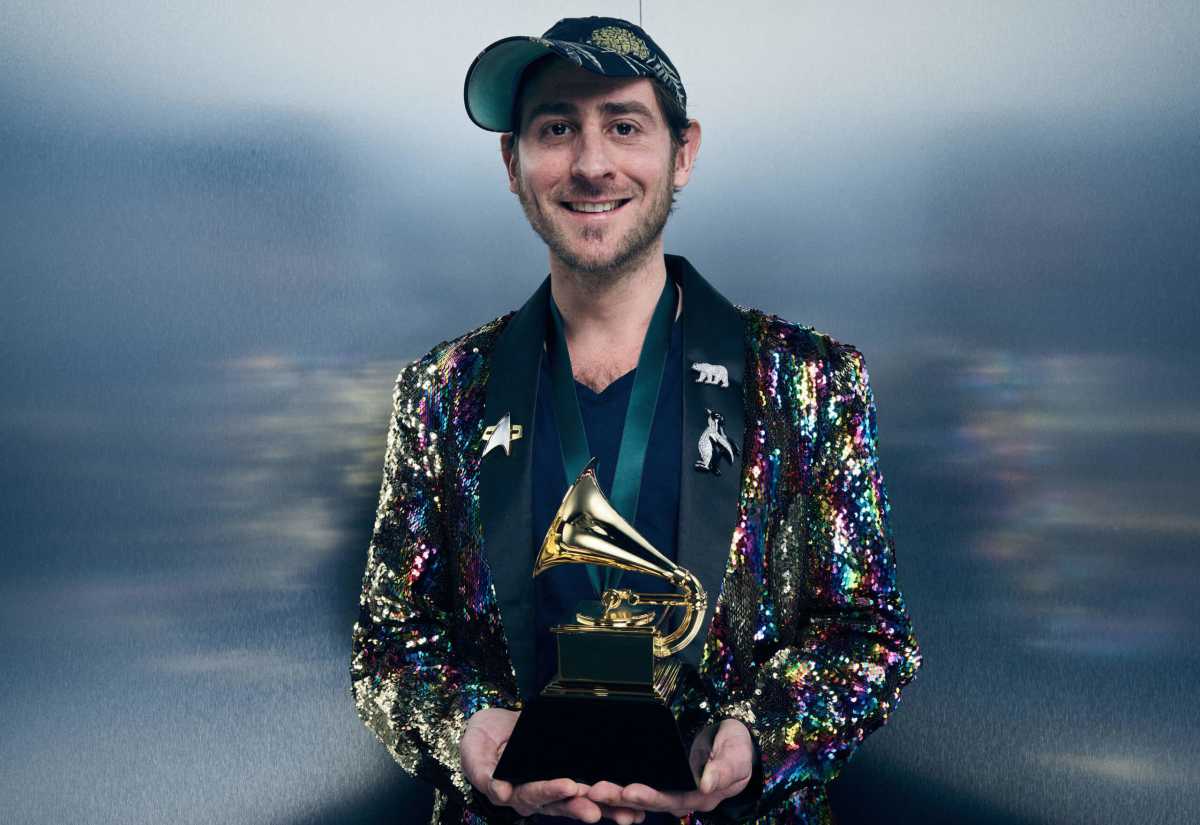A Prospect Heights resident made history last month, when he became the first Grammy-winning music therapist to win in the prestigious award show’s 62-year history!
Jon Samson, who treats kids and adults alike in his Prospect Heights practice, won the award for Best Children’s Album for his record “Ageless: Songs for the Child Archetype.”
“That was of course very exciting,” Samson said. “I definitely didn’t expect it, but I was sure hoping for it.”
Samson, a native of Johannesburg, South Africa, works in private practice, as opposed to most other music therapists who work within institutions, which he says allows him the freedom to work on his own music.
The musician released “Ageless” last summer, which featured 12 upbeat tunes including “Bye, Polar Bear,” “Love is not a Race,” and “Video Game” that focus on different aspects of a child’s psyche, or the “child archetype,” according to Samson, who offered Robin Williams’ record “Pecos Bill,” which won Best Children’s Album in 1989, as an influence.
“Ageless” is Samson’s fourth album — it follows the aptly titled “Kids Album,” “Another Kids Album,” and “A New Kids Album” — and he attributes its smashing critical success to the record’s ability to transcend age barriers and appeal to the kid in all of us.
“While my other three albums were all branded as ‘Kids Album’, my fourth release is truly intended to reach all humans, no matter what number their age,” Samson said. “We all have a child within that needs to be nourished and expressed.”
Samson says he hopes his role as the first music therapist to receive the award can help chart a path forward for his fellow music therapists — who he says occupy a niche, relatively new field, and which appeals to kids who don’t respond well to the typical public school experience.
“Traditional music education tends to be more left brain, more academic than it is right brain, creative, intuitive,” he said. “The approach is not conducive to cultivating a positive emotional experience.”
In contrast, Samson says focuses on fostering a child’s creativity, emphasizing the importance of improvisation over root memorization, which can result in emotional pieces such as “Concentration Camps for Creativity” an improvised song by a child named Darya, which Samson says was the result of her frustrations with her heavy workload from school, which was stifling her creative energy. Samson says he looks forward to releasing a treasure trove of his other improvised works sometime soon.
























